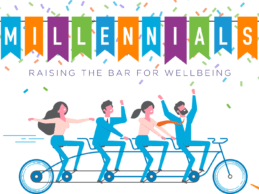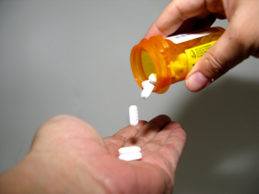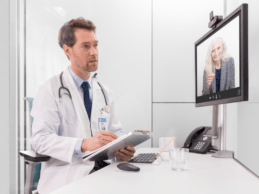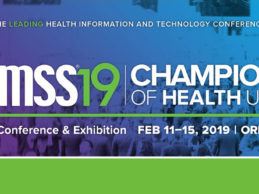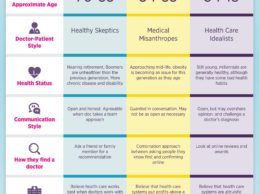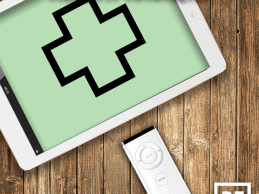Millennials are demanding more from their employers in terms of wellbeing support. This includes wanting support from managers and wellbeing programs, and multiple ways (including digital) to access resources. The new Millennials: Raising the Bar for Wellbeing report by Welltok, large employers’ principal partner for employee health and wellbeing activation, confirms that this generation is more likely to invest in their whole self and many feel that their employer is missing the mark.The
Read More
millennials
1 in 10 Americans Have Offered Unused Opioids to Family and Friends
One in 10 Americans admits they’ve offered or given their unused prescription drugs to a friend or family member for either medical or recreational use, according to findings from a new consumer study conducted by Stericycle, a provider of highly specialized compliance-based healthcare and waste solutions. Despite that, a majority of Americans (75%) believe that people sharing or selling their unused prescriptions, including opioids (e.g., oxycodone, hydrocodone, morphine) is contributing to the
Read More
Request A Virtual Doctor Visit Directly from Google, Bing, Yelp
VSee, a San Jose-based telemedicine company and Doctor.com, a web-wide listings management, reputation, and patient communications platform -- are partnering to create a seamless online patient journey from Google, Bing, Yelp search to virtual visit. Doctor.com’s platform currently serves more than 200K providers and leverages the only partner network in the industry of 50+ integrations, including Google, Bing, Yelp, Healthgrades, Vitals, YP, and other major consumer health destinations.VSee
Read More
HIMSS19 Day 2 Announcements & Summary
Accenture: Millenials & Gen Z Are Shifting to Virtual, Retail, Clinic, Digital CareMillennial and Gen Z consumers in the U.S. are rapidly adopting non-traditional care models, such as retail clinics, virtual and digital services, according to results of an Accenture survey of 2,000 consumers.Key findings of the survey study include:- When considering traditional in-person care, millennials (ages 22 to 38 in 2019) were two to three times more likely than baby boomers (ages 55 to 73) to be
Read More
Survey: Providers & Patients Disagree on How Long It Takes Patients to Pay
Providers and patients disagree on how long it takes patients to pay, according to key findings from Navicure's first Patient Payment Check-Up. The recent survey conducted by HIMSS Analytics and fielded in January 2017 assesses differences in attitudes and behavior between those billing for healthcare and those paying for it. The survey reveals over half of providers (51%) say it takes their average patient more than three months to pay their full balance. Only 18 percent of patients claim it
Read More
Study: Millennials Have A High-Degree of Trust When It Comes to Attitudes About Healthcare
Millennials have a high-degree of trust when it comes to attitudes about health care, while Gen Xers are the most skeptical, according to national survey released by Vitals. Separated by decades, generations are often defined by researchers in their own unique terms. Now, a Vitals Index study that surveyed Baby Boomers, Generation X and Millennials found that the generational divides carry over into attitudes about the doctor-patient relationship and the health care system as a whole.Millennials
Read More
How Millennials Lead the Way to Healthcare Innovation
Editor's Note: Mark Haddad is VP of Consulting for the Microsoft group at SADA Systems, a full-service cloud migration and IT consulting services company, offering cloud solutions, managed services, technical services. Statisticians, researchers and workplace experts love to talk about how different Millennials are than the rest of us as workers and consumers. There have been numerous studies about the potential impact of this group on the healthcare industry, since healthcare defies nearly
Read More
49% of Consumers Prefer Doctors to Use Their Health Apps Data for Care
Expectations that smartphones and apps will change how people manage their health have risen to 69%, according to recent results of Apigee Institute’s 2015 Digital Impact Survey. Since Apigee’s first Digital Impact Survey in 2013, more than 42 million additional Americans now report that smartphones and apps have changed the way they manage their health and wellness, representing a 70 percent increase in adoption.
According to the survey, 60 percent of adult smartphone owners in the U.S. -
Read More
8 Recent Trends on How Millennials Shop for Healthcare
Millennials overtook Baby Boomers this year as the largest living generation; and while Baby Boomers may currently consume most healthcare resources, the move to value-based care and increased focus on prevention is driving healthcare providers to better understand and reach Millennial patients.
As part of its ongoing research on the changing practice of the art of medicine, Nuance Communications, Inc. today released new data on generational patient behaviors and the slideshare
Read More
Millennials: The Rising Generation of Health Hackers
We are in the midst of a healthcare revolution; however, one age group known as Millennials has developed a distrust of the U.S. healthcare system and it is driving them to spend more money now to remain healthy in the future. According to new research from Deep Focus's latest report, Spring/Summer 2015 Cassandra Report: Body, Mind, Soul, Millennials (ages 18-34) are finding alternative ways to support healthy and balanced lifestyles, using technology to “health hack” and track their health,
Read More

